|
Henry Percy had played his part in the usurpation of King Richard II and aided Henry Bolingbroke, later Henry IV in his successful attempt to gain the crown of England. By 1402 however, the Percy's had changed their allegiances and on the 19th of February, Henry, Ist Earl of Northumberland faced the king's army, under the leadership of Yorkshireman Sir Thomas Rokeby, just south of Wetherby in Yorkshire at Bramham Moor. "The exact sizes and compositions of the contending armies is not recorded but they were certainly far smaller than the thousands engaged at Shrewsbury three years earlier and little detail of the actual engagement survives. It is likely that the action followed the course of many medieval battles where the armies and generals were evenly matched. Lord Percy is said to have positioned his men carefully and awaited Rokeby’s arrival at 2.00 p.m. when battle was instantly joined and, though not long in duration, was said to be sharp, furious and bloody. It is generally believed that the English longbow, the ultimate weapon of its day (as evidenced at Agincourt seven years later), thinned the rebel lines before the English charged the northern forces and violent hand-to-hand combat ensued in a huge melee, probably with little tactical direction " (1) Henry IV's army defeated Percy's forces, in the final battle of the “Percy Rebellion”. This victory removed the threat of a rebellion in the north.
1 Comment
St Mary's Church porch in the village of Speldhurst in Kent has an interesting coat of arms over the door. It is that of Charles, Duke of Orleans. In 1415, at the Battle of Agincourt, the Duke of Orleans was wounded and he lay under a pile of dead French soldiers who had perished during the barrage of English arrows. The story goes that my ancestor, one Richard Waller, discovered him and took him home to his manor at Groombridge in Kent, but how long he was a prisoner of my 15th great grandfather I have yet to discover. The Duke spent over twenty years as a hostage in England in such famous places as the Tower of London and Pontefract Castle, until he finally returned home to France in November of 1440. So, as not to let history forget this great event, Richard Waller, or one of his descendants restored St Mary's to its former glory, placing his coat of arms, which had been granted to him by the duke, to quarter with his own, upon a stone over the South Porch. What a great story.
My Waller ancestors were not the most important family in this part of Kent but their fortunes did change for the better in later years, I wonder if this is because of this episode in the family’s history? Not everyone captures a member of the French aristocracy, it must have given them a bit of a boost socially but it certainly didn't increase their wealth (a ransom was never paid for the duke’s release.) Their money was made in the iron industry. On this day in 1469, the marriage of Isabella of Castile and Ferdinand of Aragon. This marriage had been previously arranged, but Isabella would only consent if she met with the future king of Aragon before the marriage took place, this meeting had been organised for the 11th of October. The young man that Isabella first set eyes on was a dark-haired, seventeen-year-old with chubby cheeks and full lips who she must have found attractive.
Isabella was a year older than Ferdinand, they also were second cousins. The marriage of second cousins was illegal and therefore there were consanguinity issues, however documentation, dated five years earlier, had been found that decreed that Ferdinand could marry within the third degree of consanguinity, and this papal bull legalised their marriage. The wedding took place at the Palacio de Los Vivero (Palace of the Nurseries) in the city of Valladolid in Castile and their first child, a daughter, Isabella, was born just under a year following their marriage. Isabella and Ferdinand went on to have another six children, the most famous, from an English point of view, was Catherine, the wife of Prince Arthur and later his brother Henry. Isabella and Ferdinand's marriage paved the way for the unification of Aragon and Castile into a single country that we now know as Spain. I often wonder what I would do in a given situation in history, for instance, would I have followed Richard Duke of York against Henry VI? At Henry VIII's separation from Rome would I have stuck with the old religion or taken up the new Protestant one? Nobody knows what they would have done, and I suppose it all depends on who your family were, what positions they held and how they thought the turning of fortunes wheel might affect them. My 15th century West Country ancestor was a fervent heretic hunter, yet his Catholic son, considered ‘suspect and weak and followed only those noblemen who are dangerous in the county’ conformed to the teachings of the Protestant church. I have to assume that, if I was with my ancestor at this time I might have joined him in capturing those men who were not of the same faith as me or maybe I would have been willing to join a rebellion that was taking place in the first few months of the reign of Queen Mary that was known as Wyatt's Rebellion. The proposed marriage of the newly crowned Queen Mary to Philip of Spain and the fear that many people had that England would once again turn towards the old religion was at the root of Wyatt's rebellion. He had previously been imprisoned for his support of Lady Jane Grey’s claim to the throne but he had managed to escape the executioner's axe. Wyatt's new plan was to remove Mary from the throne and replace her with Elizabeth, who would then marry Edward Courtenay. Courtenay was never a proven rebel but he was however embroiled in the plot. Peter Carew, a West Country gentleman did take part as did Henry Grey, Duke of Suffolk. Many others joined Wyatt but no one seemed to notice that the vast majority of the populace had taken to Mary as their queen. On entering London Wyatt's rebels were outnumbered by the queen's forces and Wyatt was captured. While in the tower Wyatt named Edward Courtenay as the instigator of the rebellion and begged Courtenay to admit to it. By implication, Courtenay and Princess Elizabeth were suspected of being involved and they too were imprisoned, when no evidence was found they were both released and Courtenay fled the country but Wyatt was sent to trial at Westminster Hall on the 15th of March. Thomas Wyatt mounted the scaffold on the 11th April in 1554 and was executed for treason. Following his trial Thomas Wyatt was beheaded on Tower Hill, his body quartered and his bowels and genitals burned. Wyatt's demise was gruesome but the treatment of his remains was even more so, his head and body parts were then taken and parboiled and were later displayed for all to see, his head however disappeared.
What of the fate of Carew and the Duke of Suffolk? Carew, like Courteney, escaped abroad he was captured and imprisoned but later released on payment of his debts to the crown. The Duke of Suffolk also escaped but was found on his estate in Warwickshire, where he was betrayed by his gamekeeper. On this day, the 23 April 1616 William Shakespeare died, the 23rd of April may have even been the day he was born too. His baptism appears in the parish register for the 26th April 1564, babies were usually baptised a few days after their birth so it is in the realms of possibility. William Shakespeare was one of our greatest playwrights, (I forgave him for the hatchet job he did on Richard III years ago!) and would like to write a piece on him myself but his life and his works are much covered and in a way I could never aspire to. However, I found this lovely comic line supposedly said by the man himself and thought, "this is my piece on Shakespeare." "No I have drunk with Piping Pebworth, Dancing Marston, Haunted Hillboro’, Hungry Grafton, Dodging Exhall, Papist Wixford, Beggarly Broom and Drunken Bidford and so, I will drink no more." The line supposedly originates from when he was visiting Stratford, Shakespeare is said to have gone on a Elizabethan 'pub crawl' setting out with a party of friends with the intent of out drinking a drinking club from the neighbouring village of Bidford on Avon. Drinking, all night, in no less that eight ale houses in the same number of villages, including Marston, Exhall and Wixford, Shakespeare finally fell asleep under a tree, where he was woken in the morning by his drinking friends who asked him join them the following evening, to which Shakespeare is said to have replied with the above sentence. There is no proof that Shakespeare actually had the conversation but still, it may have come from his lips. We know he wrote comedy using such things as slapstick and practical jokes, and this statement is a fine example of Shakespeare talking in a quick and witty manner. What a great pun! Only a man with the talent of William Shakespeare could have said that surely.here to edit.
On this day in 1457 Henry of Richmond, later Henry VII was born at Pembroke Castle to Margaret Beaufort and Edmund Tudor. In 1455, at the age of just twelve years old Henry's mother, a wealthy heiress had married Edmund Tudor, the son of a commoner who had climbed into the bed of a queen of England. Margaret was soon pregnant. Henry was born into a country that was divided by conflict and civil war. Margaret Beaufort was just a child herself and Henry's birth did irreparable damage, this could account for the fact that she never gave birth again, however she turned out to be an influential and dominant figure throughout Henry's life. Margaret was also aware of her son's vulnerability and because of this sent him into the care of his uncle, Jasper Tudor. Following the Battle of Tewkesbury in the May of 1471 Jasper and Henry fled to Brittany and then finally into France. Henry spent, in total, fourteen years of his life in exile. His return to England in 1485 has been much written about, and most of you will know that he was aided at the Battle of Bosworth by Thomas Stanley, his mother's husband and his brother William. Henry of Richmond became king of England on the 22nd August in 1485.
I, of course, am a Ricardian and see Henry as a usurper, whose claim to the throne is a tenuous one to say the least, however, Richard and Henry's stories are real and to understand Henry, Richard and the Wars of the Roses it is always best to read widely with the aim to gain an understanding of both sides of story, therefore I add this paragraph taken from the Henry Tudor Society about Henry. "He is a king often accused of being parsimonious, miserly, ruthless, severe and avaricious to the extreme, cold to his wife and cruel to friend and foe alike. The study of Henry’s life, from his beginnings through to the exile, and from his early reign to the tragic end, put forward a different man. It is this man, the real Henry, not the mythical Henry, that we aim to bring to the fore. A man who had an astounding tenacity to survive, to cling to his throne and to pass his crown to his son in a peaceful manner, something which eluded several monarchs before him." Here a link to the Henry Tudor Society - henrytudorsociety.com/?fbclid=IwAR2DEEbRVuKvHsmExFXibyQXSiXNnOvKz-5ARFeP31VIqfD2S7sFQKwzT84 I've just spent the last four days suffering from a dreadful cold which, I suppose, you could call Flu. While I was coughing and spluttering my way through numerous hankies and cups of Lemsip, I wondered how on earth the poor souls in medieval England managed without the support of chocolate and assorted historical dramas, no Wolf Hall then!
Flu has been around forever, it is known that a major epidemic of something similar to influenza followed Charlemagne and his army across Europe in the middle of the ninth century. Medical experts suggest it arrived in Italy and spread northwards, and this is well documented. Repeated influenza pandemics broke out in this pattern between the sixteenth and eighteenth centuries. This virus has been described as a "cough that spreads like the plague" Modern historians believe that a sickness that was present at the Siege of Troy was Influenza. It had been described in the Iliad that a nine day epidemic had its beginnings in the Trojan War, its symptoms first affecting horses and dogs. However in a paper "Animal Influenza in the Ancient Literature" it states that "domestic animals associated with possible human influenza outbreaks in the ancient literature are ultimately inconclusive." Flu was not a major worry in the fourteenth century but was the bane of the lives of those in the fifteenth century and inflicted terrible losses within the life time of our grandparents too. This little nursery rhyme was sung on England's school playgrounds throughout the country. I had a little bird Its name was Enza I opened the window and in-flu-enza The nursery rhyme was referring to the influenza virus that was spreading across the country at a great rate. As the Great War was ending, a threat was emerging that was even more lethal than the fighting that had brutally cut down so many young men. The pandemic of 1918-19 claimed the lives of between twenty and forty million people around the world, at least three times the number killed in war. More died in a single year than died in the four years of the Black Death from 1347 to 1351. At the height of the pandemic, in the Yorkshire city of Sheffield, over 3000 people were dying a week. Not only were hospitals unable to cope, but with a shortage of both labour and coffins, mortuaries and undertakers were overwhelmed. Of the virus Charles Cheighton in his book, The History of Epidemics in Britain states that "Influenza appears to correspond with something broadly the same in human life at all times and to have lasted unchanged through so many mutation from medieval to modern it is unique in history." A resilient little blighter isn't it? Its a good job that I am a cheerful soul, even if I do say so myself, or I might be panicking! However, apart from a miserable few days the only trouble it caused in our house was that the dog went un-walked, no housework, no cakes baked and no time-travelling in the medieval world was done. But as you can see from this new blog I am on the mend. Atchoo !!!!! It was late in the evening of the 20th February in 1437 that James I of Scotland met his death at Blackfriar's Church in Perth, Scotland. The bolt on the inside of the king's bedchamber door had been purposely removed leaving it easy for the assassins to force their way in. On hearing a noise outside, James was quick to realise that his life was in danger, he hoped to make his way to safety through a small tunnel that led to the cellar. While James was making his escape it is said that Catherine Douglas, lady in waiting to Jame's queen Joan Beaufort, rushed to the bedchamber door and placed her arm across the door to prevent the murderers making their entrance. However, the door was easily forced and this broke Catherine's arm. The king crawled along the tunnel but his exit was blocked. Unable to escape he waited in silence until he thought the danger was over and then called out, but the men were still in the room, two of his assassins crawled in and attacked him with knives, the third coming in later finish him off.
James died from sixteen stab wounds, his hands torn to ribbons defending himself from his enemies blades. James's killers, Walter and Thomas Stewart where related to the king through Robert II of Scotland, and Robert and Thomas Graham were wealth landowners. They all managed to escape, but were soon found and all died horribly gruesome deaths in ways that don't bear thinking about. Walter Stewart and Robert Graham had problems with James's rule that were numerous and complicated. They did conspire and act against the king in what appears to be a frenzied attack. However, I do realise these were hard and different times, but the way these men were dealt with was simply barbaric. 18th February 1408 - Knaresborough, Yorkshire. In the first months of 1408 a 'great frost and ice' gripped England and a thick covering of snow had fallen, Henry IV was suffering from another attack of a skin disease that had been troubling him for several years, and a rebel force, headed by Henry Percy, Earl of Northumberland and the East Anglian baron Thomas Bardolf, was on the move. The winter was not a time when battles were fought in England, however, in the third week of February Henry Percy's army faced a royalist force at the Battle of Bramham on a moor just west of Tadcaster. Henry Percy had long been a supporter of Henry Bolingbroke and had aided him in his usurpation of the throne in 1399, and it was he who had arrested Richard II at Conway Castle, however, he changed his allegiance being in league with Welsh leader Owain Glyndwr and Edmund Mortimer to topple Henry's crown. In his cause, Percy not only had the support of the men of Wales, but he had been assured by *Richard Rokeby and one John Skelton that both the men of Yorkshire and Cumbria would side with him. In his work, Scotichronicon, fifteenth-century chronicler Walter Bower wrote '... he trusted more than the others one of his knights called Richard Rokeby, who wrote back to him in Scotland advising him to gather some Scots and enter Northumberland openly' and 'trusting to Rokeby's advice therefore and against the wishes and advice of the governor Percy in seeking to acquire the kingdom or England hastened to his death there.' Encouraged Percy moved to Tadcaster and then from Thirsk made his way to join **Rokeby and the forces he had been promised. On the 18th of February he approached Knaresborough he found that Rokeby was not waiting to join him but was at the head of the king's forces and was holding the crossing of the River Nidd at Grimbald Bridge. Percy and his men were forced to head towards Wetherby with Rokeby in pursuit. Following this betrayal, Henry Percy had no option but to do battle, he would face Richard Rokeby's force on high ground at Bramham Moor the following day.
On this day in 1449 the birth in Dublin of George, Duke of Clarence to Richard, Duke of York and Cecily Neville. George's life is viewed as a long list of facts that give us some insight into his life and there isn't much written about Clarence as a person at all so because of this Clarence's character is hard to define. However, I have often wondered if we could apply the modern term 'middle child syndrome' to help understand his personality. Maybe it was his position within his family that made him the man he was, looking at the personality traits of a modern 'middle child' surprisingly Clarence fits the 'profile' on a number of points.
1. Middle children are not particularly interested in family hierarchy or ranking: Clarence could not have cared less that his brother was king, he would undermine him given an opportunity, he had joined in all the careless talk, calling into question the legitimacy of the kings birth. His later actions had convinced Edward that he was looking to take the throne out from under him. 2. Middle children are more interested in taking advice from others outside the main family group: Clarence was reliant on his cousin Richard Neville rather than Edward or Richard. He took Neville's 'advice' on more than one occasion, joining him in supporting a northern rebellion and went along with the idea to restore King Henry VI to the throne of England, realising too late that listening to Neville was not a good idea after all. 3. Middle children are risk takers and are more rebellious than their siblings: Clarence certainly ticks both these boxes. By rebelling with Neville, Clarence risked everything and lost. He lost his position as Lord Lieutenant of Ireland, and by organising yet another rebellion, because of the loss of his Warwick lands to Richard, he caused a major rift that was ultimately the last nail in his coffin. 4. Middle children don't like conflict: This is one category that Clarence doesn't fit into. Of course, Clarence wasn't a middle child at all, he was number six of seven so you could argue that this hypothesis doesn't make any sense at all.....but it does if you look at it from the point of view that he was eventually slap bang in the middle of three boys. His older brother Edmund had died at the Battle of Wakefield aged just seventeen, I wonder if he had lived he would have shown the same personality traits as Clarence or would Clarence have been a different person altogether? Supposition this may be, but whatever the cause Clarence turned out to be a weak self-centred man, and in the end, it was greed and jealousy that cost him his life. |
Archives
February 2024
Categories
All
After ten years in the workplace I became a mother to three very beautiful daughters, I was fortunate enough to have been able to stay at home and spend my time with them as they grew into the young women they are now. I am still in the position of being able to be at home and pursue all the interests I have previously mentioned. We live in a beautiful Victorian spa town with wooded walks for the dog, lovely shops and a host of lovely people, what more could I ask for.
All works © Andrea Povey 2014. Please do not reproduce without the expressed written consent of Andrea Povey. |
- Home
-
My Family Stories
- Bustaine of Braunton: Introduction
- Hunt of Barnstaple Introduction >
- Lakeman of Mevagissey >
- Meavy Introduction >
- Mitchell of Crantock: An Introduction >
- Mohun of Dunster: Introduction >
- Purches of Hampshire and Cornwall >
- Scoboryo of St Columb Major >
-
Thomas Vaughan: An Introduction
>
- Smith of Barkby Introduction >
- Taylor Introduction >
- Tosny of Normandy >
- Toon of Leicestershire: Introduction >
- Underwood of Coleorton Introduction
- Umfreville of Devon >
- Other Families
- History Blog
- Wars of the Roses Blog
- The Ancestors
- A to E
- F to J
- K to O
- P to T
- U to Z
- Hendley of Coursehorne Kent
- Pigott Family of Whaddon Buckinghamshire
- Links
- Contact
- Umfreville test
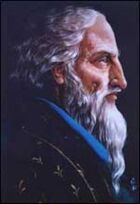
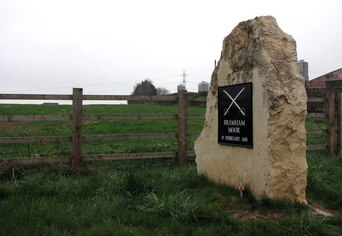
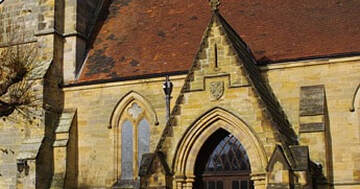
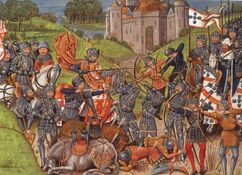
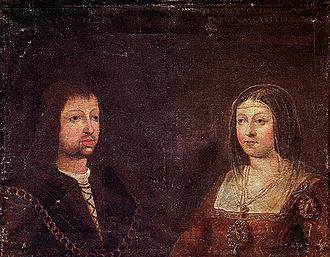
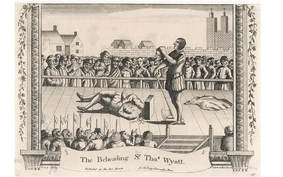
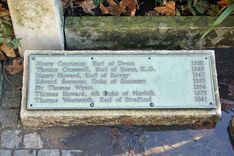
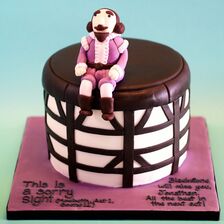
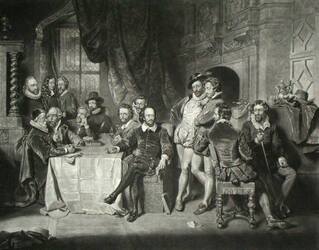
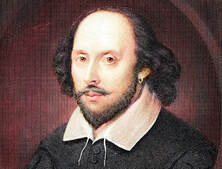
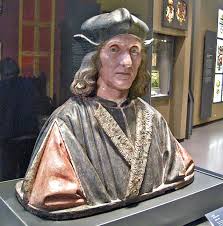
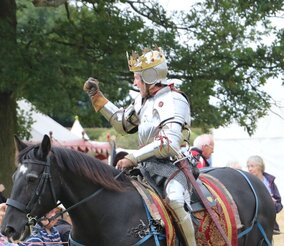
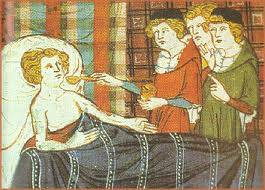
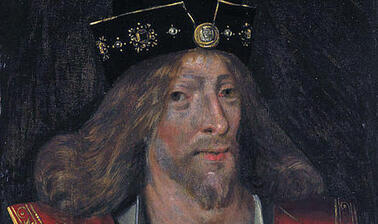
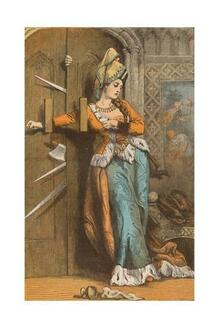
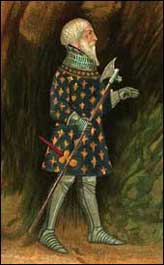
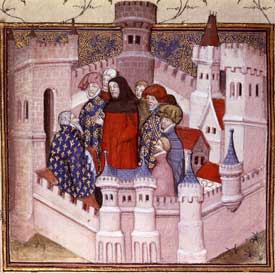
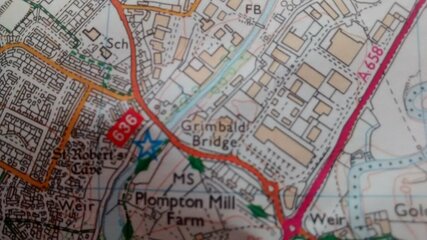
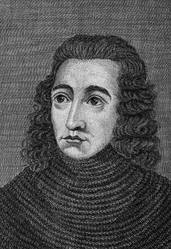

 RSS Feed
RSS Feed
